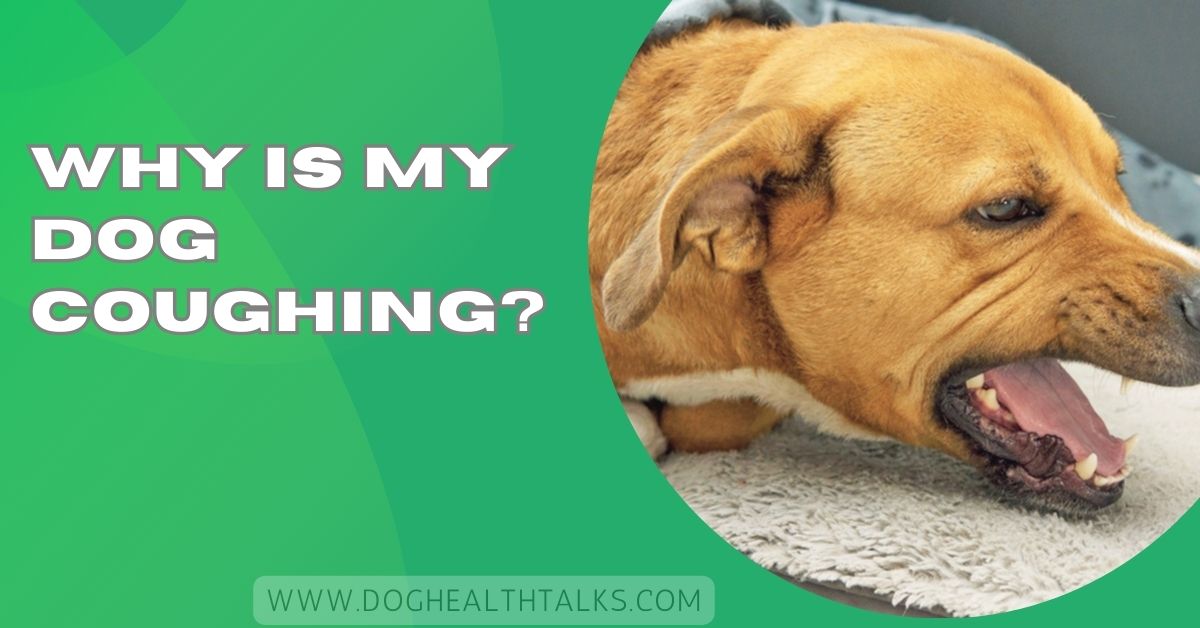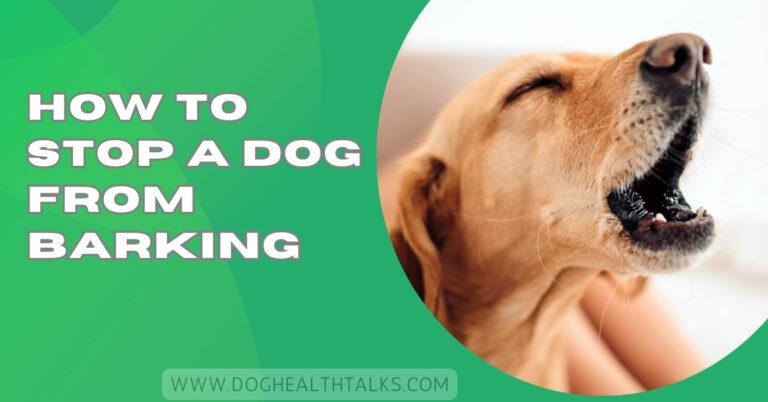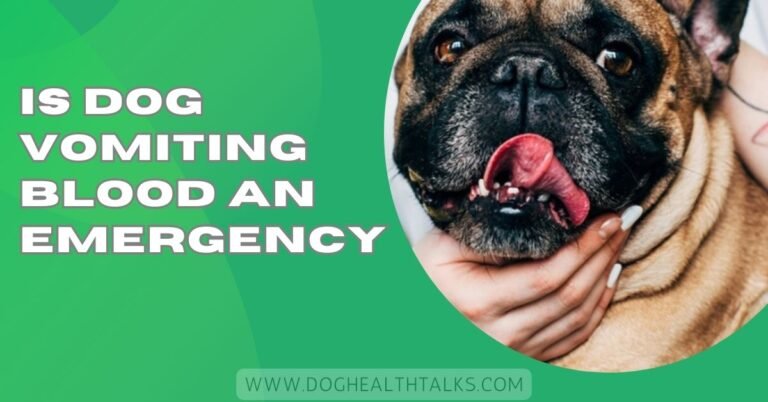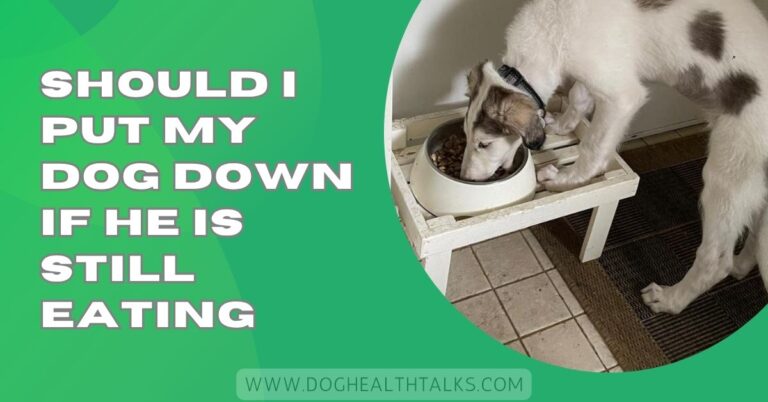Why Is My Dog Coughing? – Top Causes Explained 2026 Guide
Coughing in dogs can be worrying for any pet parent. Sometimes it’s just a minor irritation, such as dust or allergies, but other times it may signal a more serious health issue.
Dogs cough for many reasons, including kennel cough, allergies, heart disease, collapsing trachea, pneumonia, or foreign objects in the throat. While mild cases may pass, constant or worsening coughing needs a vet’s attention for safe care.
This guide explains the common reasons your dog may cough and the steps you can take to keep them safe and comfortable.
Why Is My Dog Coughing
There are several causes behind a dog’s cough.
1. Dog Cough Due to Infections
Infections like kennel cough or pneumonia can irritate a dog’s airways, leading to frequent coughing. Kennel cough often sounds dry and hacking, while pneumonia may cause moist, heavy coughs.
These illnesses spread quickly between dogs, especially in shared spaces like kennels or parks.
If your dog develops a persistent cough after socializing, it’s essential to consult your veterinarian for treatment and to prevent further complications.
2. Dog Cough Due to Chronic Bronchitis
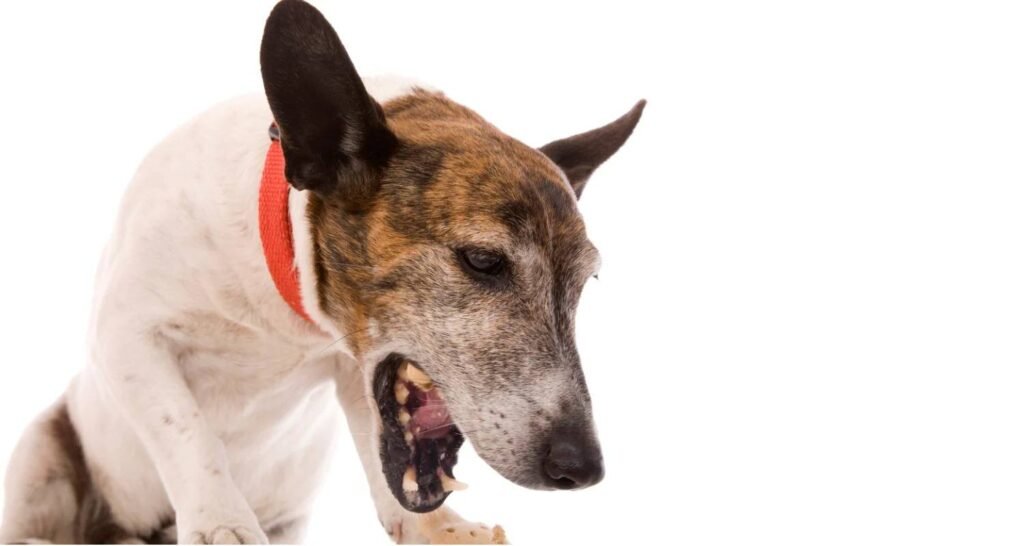
Chronic bronchitis is a long-term condition where the airways stay inflamed, causing ongoing coughing and breathing trouble.
Dogs with this condition often have a dry, hacking cough that doesn’t go away. While it can’t be cured, treatments can ease symptoms and improve quality of life.
Managing weight, avoiding smoke or dust, and using prescribed medications can help your dog stay comfortable and active.
3. Dog Cough Due to Allergies
Just like people, dogs can develop allergies to pollen, dust, smoke, or even certain types of food. These allergies sometimes trigger coughing, sneezing, or wheezing.
If your dog’s cough seems seasonal or appears after exposure to irritants, allergies may be the cause.
Reducing contact with triggers and asking your vet about safe allergy treatments can help. Keeping your home clean and using air filters often makes a big difference.
4. Dog Cough Due to Reverse Sneezing
Reverse sneezing can sound alarming, almost like coughing or choking, but it’s usually harmless. It happens when air is rapidly pulled into the nose, often due to excitement, irritants, or allergies.
Dogs may stand still, extend their neck, and make snorting sounds. These episodes are typically short and resolve on their own. Still, if they occur frequently or worsen, it’s best to consult your vet for reassurance.
5. Dog Cough Due to Heart Disease
Heart problems can cause fluid to build up in the lungs, leading to frequent coughing. This cough often sounds moist or happens more at night or after exercise.
Dogs with heart disease may also seem tired or breathe harder than usual. Early diagnosis is crucial because it can help alleviate symptoms and slow the progression of the disease. If your dog exhibits these signs, timely veterinary care can make a significant difference.
6. Dog Cough Due to Collapsing Trachea
A collapsing trachea occurs when the airway weakens and narrows, making breathing more difficult. Dogs with this issue often have a loud, honking cough, especially when excited, pulling on the leash, or after exercise.
Small breeds are more prone to this condition. While it can’t always be cured, medications, weight control, and harness use instead of collars help manage symptoms and keep your dog more comfortable.
7. Dog Cough Due to Pulmonary Hypertension
Pulmonary hypertension is high blood pressure in the lungs, which puts stress on the heart and airways. Dogs with this condition may cough, tire easily, or struggle to breathe after activity.
It often develops as a complication of heart disease, lung disease, or heartworms. Though serious, it can be managed with proper vet care and medication. Prompt attention helps improve your dog’s comfort and quality of life.
8. Dog Cough Due to Heartworm Disease
Heartworm disease can damage the heart and lungs, leading to persistent coughing. Mosquito bites spread this parasite, making prevention very important.
Infected dogs may also become weak, tired, or struggle to breathe. Because heartworm can be life-threatening, early detection and treatment are critical.
Monthly preventatives prescribed by your vet are the safest, proven way to protect your dog from this dangerous condition year-round.
9. Dog Cough Due to Foreign Objects Stuck in the Throat/Airways
Sometimes, dogs inhale or swallow objects that become lodged in their throat or airways, causing sudden coughing or choking.
Common culprits include food pieces, toys, or bones. This can quickly become dangerous if the object blocks breathing.
If your dog coughs violently, gags, or struggles for air, seek emergency vet care right away. Acting fast can save your dog’s life and prevent lasting damage.
10. Dog Cough Due to Foxtails

Foxtails are sharp grass seeds that can become lodged in a dog’s nose, throat, or lungs, causing painful coughing. They can also migrate deeper into the body, causing serious infections.
If your dog suddenly starts coughing, sneezing, or pawing at their mouth after outdoor walks, foxtails could be the reason. Quick vet removal is essential, since these seeds don’t break down on their own.
11. Dog Cough Due to Laryngeal Paralysis
Laryngeal paralysis happens when the muscles that open the airway don’t work correctly, making it hard for dogs to breathe.
Affected dogs may cough, wheeze, or create a raspy sound, especially during activity or in hot weather.
Larger breeds are more at risk. While this condition can be severe, treatments and in some cases surgery can improve breathing, helping your dog live more comfortably and safely.
12. Dog Cough Due to Cancer
Coughing in dogs can sometimes signal cancer in the lungs or airways. Tumors may press on the windpipe or lungs, causing persistent or worsening coughs.
Other signs include weight loss, reduced energy, or trouble breathing. While the word “cancer” feels scary, early detection often allows for better treatment options. A vet checkup ensures you know the cause and can explore the proper care.
13. Dog Cough Due to Rat Poison Ingestion
Certain rat poisons can cause internal bleeding, which sometimes shows up as coughing or even coughing up blood. This is a medical emergency. If you suspect your dog ate poison, don’t wait—go to the vet immediately.
Quick treatment can save their life. Keeping rodenticides locked away and using pet-safe alternatives is the safest way to prevent this frightening situation from happening.
14. Dog Cough Due to Esophagitis
Esophagitis is inflammation of the food pipe, often caused by acid reflux or swallowing something irritating. Dogs with this condition may experience coughing, gagging, or regurgitation of food.
It can be uncomfortable and may get worse if untreated. Vets usually recommend diet changes, medications, and preventing triggers like fatty foods. With care, most dogs recover well and get back to eating and breathing comfortably again.
15. Dog Cough Due to Tumors in the Larynx and Trachea
Tumors in the throat or windpipe can block airways and cause a persistent, harsh cough. Dogs may also exhibit noisy breathing, changes in their voice, or difficulty swallowing.
These tumors can be benign or cancerous, but either way, they need medical attention. A vet can confirm the cause and suggest surgery, medication, or other treatments. Early detection gives your dog the best chance for relief.
16. Dog Cough Due to Aspiration Pneumonia
Aspiration pneumonia happens when food, liquid, or vomit accidentally enters the lungs, causing infection and coughing.
Dogs may also have fever, breathing trouble, or loss of appetite. This condition can be severe and requires prompt veterinary care, often involving antibiotics and supportive treatment.
Preventing your dog from eating too quickly or managing underlying swallowing problems reduces the risk of this dangerous condition.
17. Dog Cough Due to Inhaling Indoor Irritants
Household irritants, such as smoke, cleaning sprays, or strong perfumes, can trigger coughing in dogs. Just like people, their lungs can be sensitive to chemicals and dust.
If your dog coughs after house cleaning, smoking, or burning candles, indoor air quality may be the issue. Keeping the home well-ventilated, using pet-safe products, and avoiding smoke indoors are simple, proven ways to keep your dog’s lungs healthy.
18. Dog Cough Due to Lung Lobe Torsion
Lung lobe torsion is a rare but serious condition in which a portion of the lung twists, blocking airflow and the blood supply. Dogs with this condition may experience coughing, difficulty breathing, or sudden collapse.
Large, deep-chested breeds are more at risk. It’s a medical emergency that usually requires surgery. If your dog shows sudden, severe breathing issues, seek emergency vet care right away—it can be life-saving.
19.
Read More:
Can Dogs Have Tylenol? – Hidden Dangers Explained Simply!
What To Do If Your Dog Is Coughing

- Stay Calm and Observe: Watch how often your dog coughs, what it sounds like (dry, wet, honking), and when it happens (at night, after exercise, or all the time).
- Check for Emergencies: If your dog is choking, struggling to breathe, coughing up blood, or collapsing, go to the vet immediately.
- Remove Possible Irritants: Keep your dog away from smoke, strong cleaning sprays, or dusty areas that might trigger coughing.
- Look for Other Symptoms: Notice signs such as loss of appetite, tiredness, fever, or weight loss—these can help your vet determine the cause.
- Avoid Home “Quick Fixes”: Don’t give human cough medicine or random remedies. Many are unsafe for dogs.
- Call Your Vet: If coughing lasts more than a day or two, or seems severe, schedule a vet visit. Early care prevents bigger problems.
- Follow Vet’s Plan: Use prescribed treatments, keep follow-up appointments, and give medicines exactly as directed to help your dog recover safely.
Diagnosing Coughing in Dogs
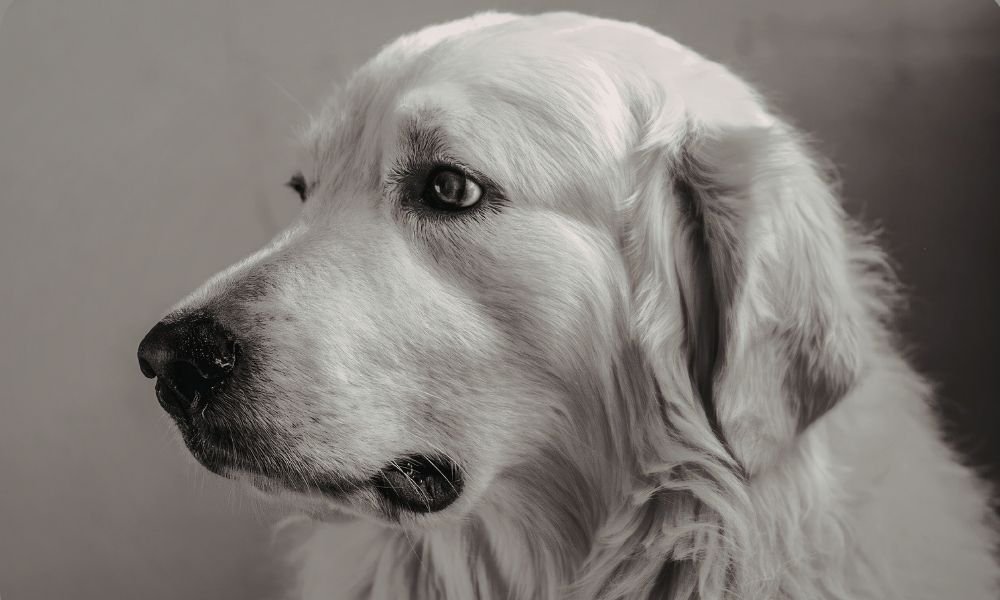
Step 1: Health History
Your vet will ask questions about when the cough started, how often it happens, and if your dog has traveled, been around other dogs, or has past health issues.
Step 2: Physical Exam
The vet listens to your dog’s chest, heart, and lungs, and checks the throat, mouth, and overall body condition.
Step 3: Basic Tests
Blood work, fecal exams, or urine tests may be done to check for infections, parasites, or other hidden problems.
Step 4: Imaging
Chest X-rays or ultrasounds help see the lungs, heart, and airways more clearly. This helps determine whether coughing is caused by heart disease, lung disease, or something obstructing the airway.
Step 5: Specialized Testing
If needed, your vet may run an ECG (heart rhythm test), bronchoscopy (camera to check airways), or fluid sampling from the lungs.
Step 6: Diagnosis and Plan
Based on all results, the vet explains the cause of the cough and creates the safest treatment plan for your dog.
Dog Coughing Treatment
The proper treatment depends on what’s causing the cough. Vets may prescribe antibiotics for infections, dewormers for parasites, or heart medicine for cardiac issues.
In some cases, cough suppressants, inhalers, or oxygen therapy help your dog feel better. It’s essential to follow your veterinarian’s advice closely, complete all medications, and provide supportive care, such as fluids and rest, to help your pup recover safely.
Home Remedies for Coughing in Dogs
If your dog’s cough is mild and they seem healthy otherwise, simple home care can help. A humidifier or steam from a warm shower can ease airway dryness.
Ensure your dog drinks plenty of fresh water and rests in a calm, quiet environment. You can also try immune-support supplements if your vet approves. Always avoid giving human cough medicine and call your vet if symptoms get worse.
Why Is My Dog Coughing And Gagging
Coughing and gagging often happen when your dog’s throat or airways are irritated. Common causes include kennel cough, throat irritation, or something stuck. If it happens often or worsens, have your vet check for safe treatment.
Why Is My Dog Coughing Like Something Is Stuck In His Throat?

This can happen if your dog inhales dust, hair, or even a small object. Sometimes, a collapsing trachea or throat irritation causes the same feeling. If coughing is frequent or your dog struggles to breathe, see your vet quickly.
Why Is My Dog Coughing At Night
Nighttime coughing may point to heart problems, allergies, or airway irritation. Lying down can make fluid or irritation worse.
If your dog coughs mostly at night, it’s essential to consult your veterinarian about potential heart or lung issues.
My Dog Keeps Coughing And Gagging, But Nothing Comes Out
This could be caused by kennel cough, throat irritation, or a collapsing trachea. Even if nothing comes out, constant coughing is stressful for your dog. A quick vet visit is essential to rule out serious problems and ease discomfort.
Kennel Cough Symptoms
Kennel cough usually sounds like a harsh, honking cough. Dogs may gag or retch after coughing, but otherwise act reasonably regularly.
It spreads easily between dogs, so if your pup shows these signs, keep them away from others and call your vet.
FAQs
What does a cough in a dog sound like?
A typical dog cough may sound dry and harsh, similar to a honk or a gagging sound, depending on the underlying issue.
Is a cough in dogs always a sign of illness?
Not always; dogs may cough due to irritants like dust or allergies. However, persistent coughing should be checked by a vet.
When should I worry about my dog coughing?
Worry if coughing is constant, worsens, or comes with trouble breathing, gagging, lethargy, or loss of appetite.
Why does my dog cough like something is stuck in his throat?
It could be irritation, kennel cough, or collapsing trachea. If it persists or breathing becomes difficult, contact your veterinarian immediately.
What should I do if my dog is coughing?
Monitor mild coughs at home, ensure rest, hydration, and safe air. Seek vet care if it worsens or continues.
Why does my dog have a cough but is acting normal?
Mild infections, allergies, or irritants can cause this. Even if acting normally, monitor closely and see your vet if symptoms persist.
How did my dog get kennel cough at home?
Kennel cough spreads through the air, shared bowls, or brief dog contact outdoors. Dogs don’t need kennels to catch it.
Can I identify the cause of my dog’s cough just by the sound?
While the sound can provide clues, a proper diagnosis often requires a veterinary examination for accuracy.
Why does my dog cough after drinking water?
Dogs may cough after drinking due to water entering their windpipe instead of their esophagus.
Conclusion
Coughing in dogs can range from mild irritation to severe illness, so paying attention is key. Simple home care may help, but never ignore persistent or worsening coughs. Quick vet visits and proper treatment give your dog the safest path to recovery, comfort, and long-term health.
